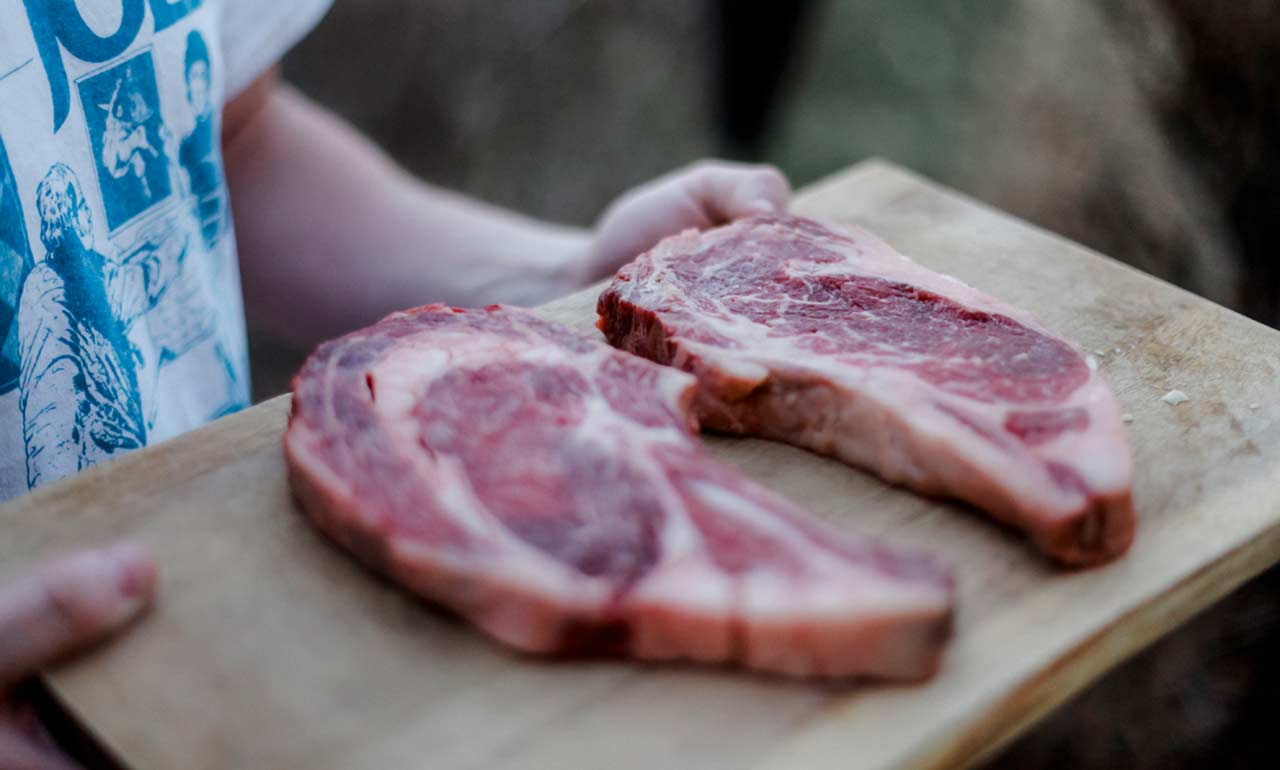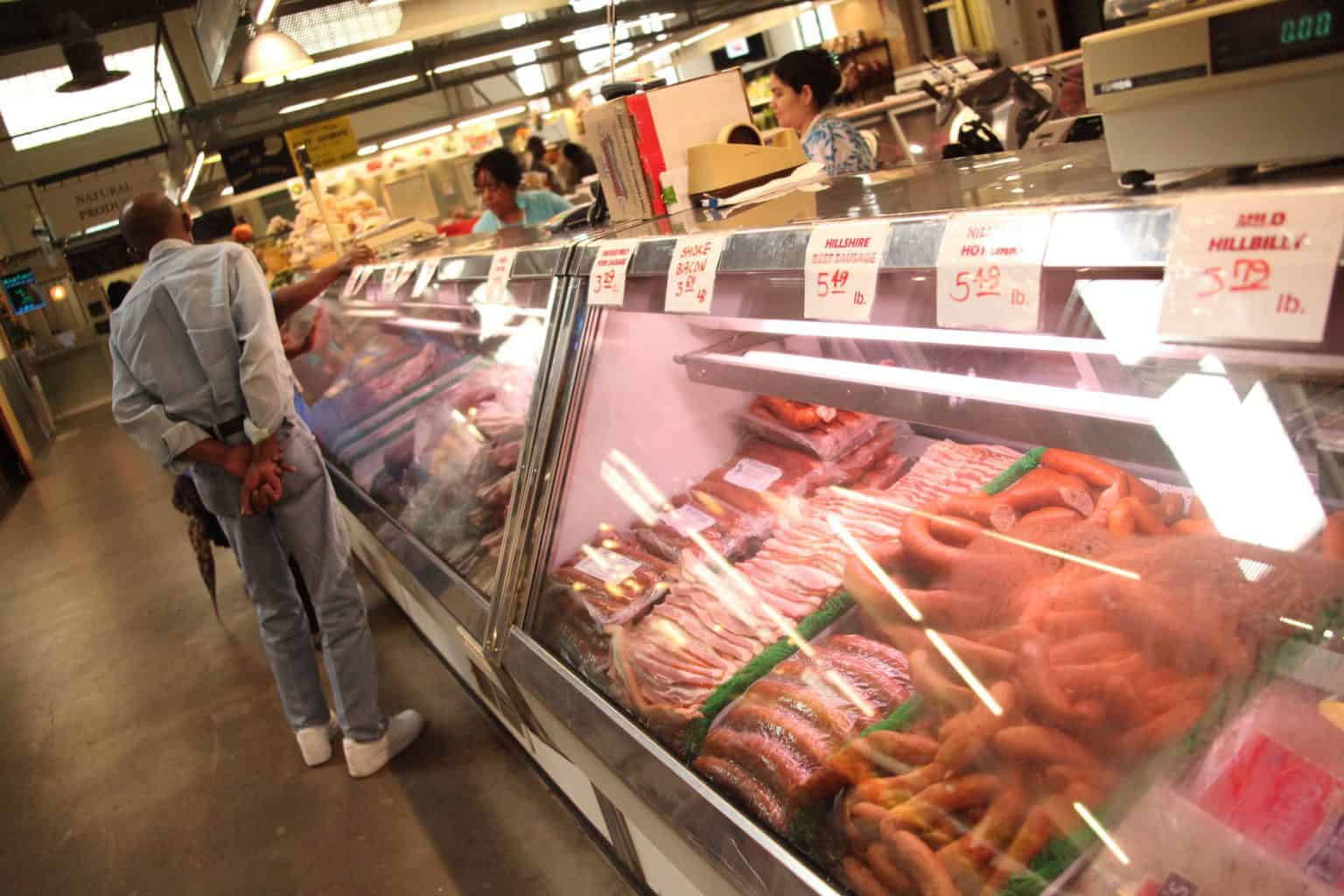Why Selecting a Meat Market Over a Grocery Store Makes a Difference in Preference and Quality
The difference in between acquiring meat from a customized market versus a grocery store commonly hinges on the nuanced layers of preference and quality. Meat markets commonly highlight quality, sourcing their items from regional ranches, which not just enhances taste but additionally fosters sustainable methods. Moreover, the competence of competent butchers can offer invaluable insights into picking the ideal cuts for numerous culinary applications, guaranteeing a more customized experience. However, the ramifications of these options expand beyond plain flavor; they raise crucial inquiries regarding the broader influence on customer routines and neighborhood economies. What else might be at risk?

Freshness of Products
Focusing on freshness is a substantial advantage of choosing a meat market over a grocery store. Meat markets normally use items that are sourced in your area and processed with a concentrate on preserving optimum quality. Unlike supermarkets, where meat may be stored for extensive periods, meat markets typically get everyday deliveries, ensuring that their supply is constantly replenished with high-grade cuts.
Furthermore, meat markets usually have a more efficient supply chain, lessening the time from farm to table. This quick turn over not only enhances the taste and texture of the meat however additionally offers customers with assurance relating to the high quality of the items they buy. The skilled butchers at meat markets can likewise offer beneficial understandings right into the freshness of their offerings, as they are totally accustomed to their suppliers and the conditions under which the meat is managed.
Furthermore, meat markets often focus on whole cuts and specialty items that may not be readily available in grocery stores, permitting customers to explore a variety of options that are fresher and much more delicious. This commitment to quality inevitably adds to a remarkable culinary experience, making meat markets an appealing option for discerning consumers.
Sourcing and Sustainability
The dedication to top quality at meat markets expands beyond quality to include sourcing and sustainability techniques. Unlike big supermarkets, which commonly rely upon mass-produced products, meat markets prioritize moral and regional sourcing. This technique not just sustains neighborhood farmers and breeders however also reduces the carbon impact related to delivering meat over lengthy distances.

Additionally, meat markets usually use a range of cuts and specialized meats that reflect the periods and neighborhood cooking customs. This dedication to sustainability cultivates a connection between customers and their food sources, advertising openness pertaining to the origins of the meat they acquire. By choosing meat markets, customers can take pleasure in not only enhanced flavors however additionally the contentment of sustaining lasting and accountable agricultural practices.
Specialist Expertise and Guidance
While purchasing at a meat market, clients gain from the professional expertise and individualized advice offered by knowledgeable butchers. These specialists are usually trained and have extensive experience in the meat market, permitting them to give understandings that go much past the basics found in a supermarket. They can lead clients on picking the ideal cuts for specific dishes or events, making sure optimal taste and tenderness.

On top of that, butchers frequently make the effort to involve with consumers, answering concerns and sharing tips that are not readily available in a grocery store setup. This level of personalized service cultivates a much deeper link between clients and their food, inevitably raising the general cooking experience. By picking a meat market, customers acquire accessibility to a wide range of expertise that can significantly influence their food preparation and enjoyment of meat.
Taste Profiles and Selection
When checking out the offerings at a meat market, clients are commonly compensated with a diverse selection of taste accounts and cuts that are normally not available in supermarkets. Unlike mass-produced meat items, which typically focus on harmony, meat markets curate their selections based upon top quality and local specificity. This leads to a range of meats that show distinct preferences, textures, and preparation approaches.

Seasonal and locally sourced choices even more enhance the experience, as these items often possess superior quality and flavor. The experienced butchers at meat markets can guide clients on the ideal cuts for certain recipes, guaranteeing that each choice lines up with desired flavor profiles and food preparation techniques. On the whole, the selection and quality discovered in meat markets not only boost the culinary experience however likewise motivate exploration and testing in home cooking.
Sustaining Neighborhood Economic Situations
Choosing a meat market not only enhances culinary experiences via diverse flavor profiles but additionally plays a significant role in supporting regional economies (bagley meat market edwardsville il). They are more most likely to involve with businesses that resource their items from regional ranches and manufacturers when customers choose for meat markets over bigger supermarket chains. This practice fosters a sustainable agricultural atmosphere, encouraging farmers to preserve typical approaches that produce top notch meats
Moreover, meat markets normally utilize regional staff, which adds to job development and retention within the neighborhood. The financial effect extends past the prompt company; cash spent at local facilities often tends to circulate within the community, profiting different markets such as retail, transport, and marketing. This regional investment aids enhance the total economic health of the area.
Furthermore, meat markets frequently stress transparency and honest sourcing techniques, which resonate with customers progressively worried about the origins of their food. By picking to purchase from these facilities, clients not only appreciate remarkable products but likewise attest their commitment to sustaining their community's economy. Essentially, selecting a meat market is a calculated choice that nurtures both personal satisfaction and wider financial vitality.
Verdict
Selecting a meat market over a grocery store significantly affects taste and high quality. The focus on quality, sustainable sourcing, and professional knowledge adds to premium culinary experiences. Access to unique cuts and diverse taste accounts boosts meal prep work and enjoyment. Additionally, supporting regional economies promotes community connections and go to this web-site advertises lasting farming techniques. Overall, the benefits of selecting a meat market extend past specific preferences, influencing wider environmental and financial variables while boosting the art of cooking.
Unlike supermarkets, where meat may be kept for prolonged periods, meat markets usually receive daily shipments, ensuring that their inventory is regularly restored with high-quality cuts.
The competent butchers at meat markets can likewise provide beneficial insights into the freshness of their offerings, as they are thoroughly acquainted with their providers and the problems under which the meat is managed.
Moreover, meat markets typically provide a variety of cuts and specialized meats that show the seasons and neighborhood cooking customs. By choosing a meat market, consumers acquire access to a wide range of expertise that can dramatically affect their food preparation and pleasure of meat.
Unlike mass-produced meat items, which commonly focus on harmony, meat markets curate their options based on quality and local uniqueness.